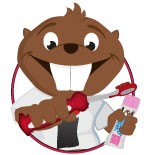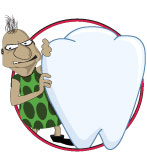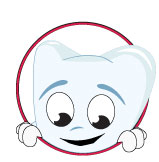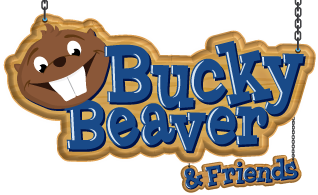Oral Care 4 Kidz
As adults, we understand the importance of good oral hygiene. As parents, we have a big responsibility in keeping our children's teeth clean and healthy. Cavity prevention starts at home with healthy eating habits and a daily oral care routine. When combined with regular visits to see a dental professional your children's teeth can last a lifetime.
This section of the website contains important information on how to properly care for your child's primary teeth and new permanent teeth.

Brushing & Oral Care
Teeth are an integral part of a Child's overall health. As a parent or caregiver it is your responsibility to teaching them healthy oral care habits that will protect their teeth and lay the foundation for future oral health.
![]() more about brushing and oral care
more about brushing and oral care

Tooth Decay
Even tiny teeth are susceptible to tooth decay and must be cleaned. Early childhood tooth decay must be treated quickly. If not, your child may suffer pain and infection. Prevention is the best medicine making a healthy oral care routine essential to your child's development.
![]() more about tooth decay
more about tooth decay

A Healthy Diet
Why is sugar bad for your child's teeth? The major cause for tooth decay is bacteria in the mouth that feeds on the sugar from the foods we eat. The bacteria produces a mild acid that attacks the enamel that covers teeth. This acid can make holes or cavities in the teeth. The damage that sugars do will depend on how much is eaten and how long the sugar remains in the mouth.
![]() more about a healthy diet
more about a healthy diet

Newborn & Infant Development
Your child's teeth should start to come in between six and nine months of age. All twenty baby teeth should come in by the time your child is two or three years old. These primary teeth play an important role in the development of speech and also help the adult teeth to come in straight.
![]() more about newborn & infant development
more about newborn & infant development

Baby's First Visit
The Canadian Dental Association encourages a visit to the dentist around the age of one or within 6 months of the eruption of the first tooth. Having your child visit the dentist before there are any problems will help ensure his or her healthy development.
![]() more about your first visit to the dentist
more about your first visit to the dentist
Fluoride & Your Child
Fluoride is a natural element that can be found in many things, like the water we drink and the food we eat. It is used by the body to help teeth make stronger enamel. When the outer layer is strong, teeth are less likely to get cavities.
![]() more about fluoride & you child
more about fluoride & you child






